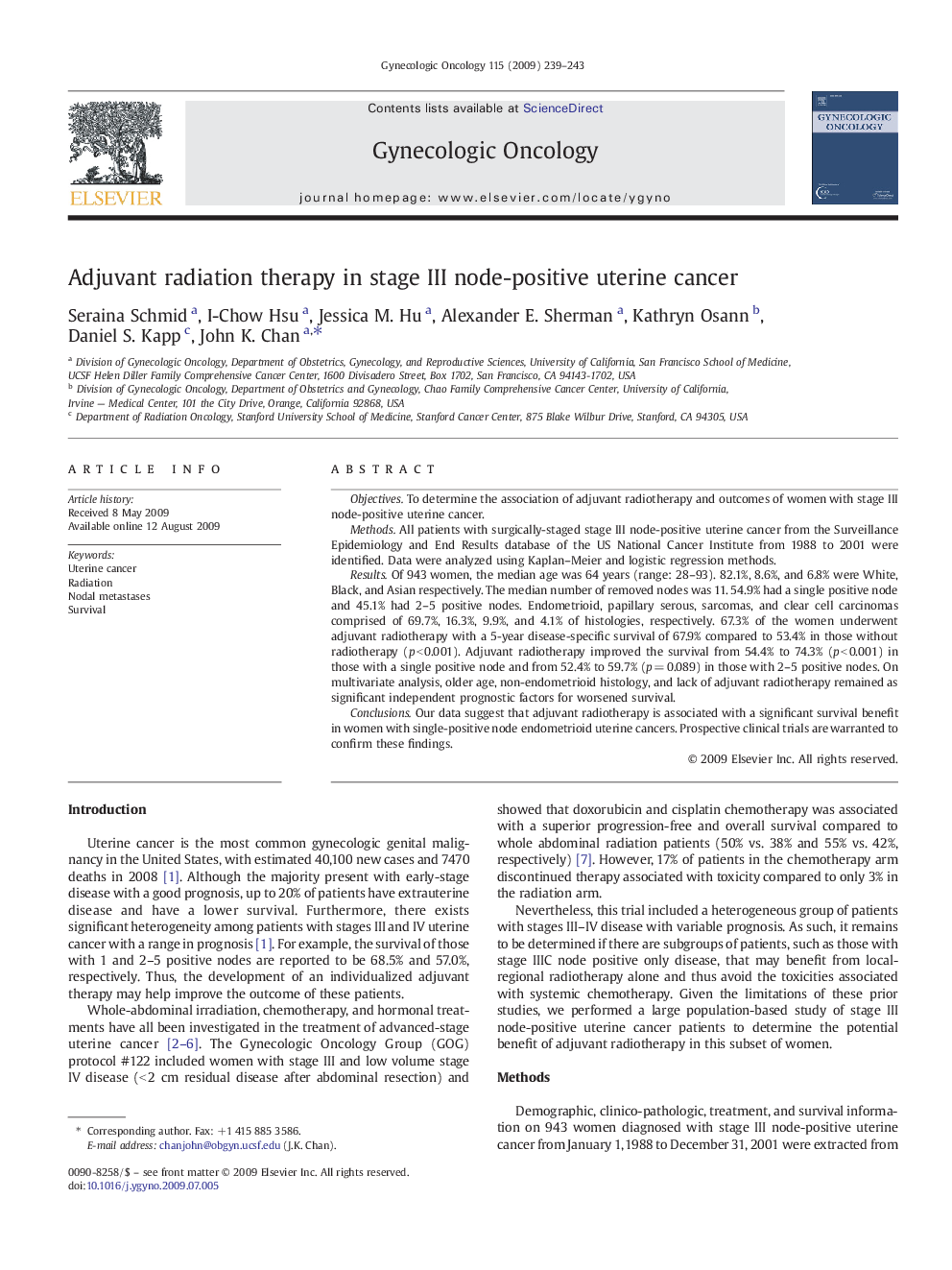| Article ID | Journal | Published Year | Pages | File Type |
|---|---|---|---|---|
| 3943292 | Gynecologic Oncology | 2009 | 5 Pages |
ObjectivesTo determine the association of adjuvant radiotherapy and outcomes of women with stage III node-positive uterine cancer.MethodsAll patients with surgically-staged stage III node-positive uterine cancer from the Surveillance Epidemiology and End Results database of the US National Cancer Institute from 1988 to 2001 were identified. Data were analyzed using Kaplan–Meier and logistic regression methods.ResultsOf 943 women, the median age was 64 years (range: 28–93). 82.1%, 8.6%, and 6.8% were White, Black, and Asian respectively. The median number of removed nodes was 11. 54.9% had a single positive node and 45.1% had 2–5 positive nodes. Endometrioid, papillary serous, sarcomas, and clear cell carcinomas comprised of 69.7%, 16.3%, 9.9%, and 4.1% of histologies, respectively. 67.3% of the women underwent adjuvant radiotherapy with a 5-year disease-specific survival of 67.9% compared to 53.4% in those without radiotherapy (p < 0.001). Adjuvant radiotherapy improved the survival from 54.4% to 74.3% (p < 0.001) in those with a single positive node and from 52.4% to 59.7% (p = 0.089) in those with 2–5 positive nodes. On multivariate analysis, older age, non-endometrioid histology, and lack of adjuvant radiotherapy remained as significant independent prognostic factors for worsened survival.ConclusionsOur data suggest that adjuvant radiotherapy is associated with a significant survival benefit in women with single-positive node endometrioid uterine cancers. Prospective clinical trials are warranted to confirm these findings.
